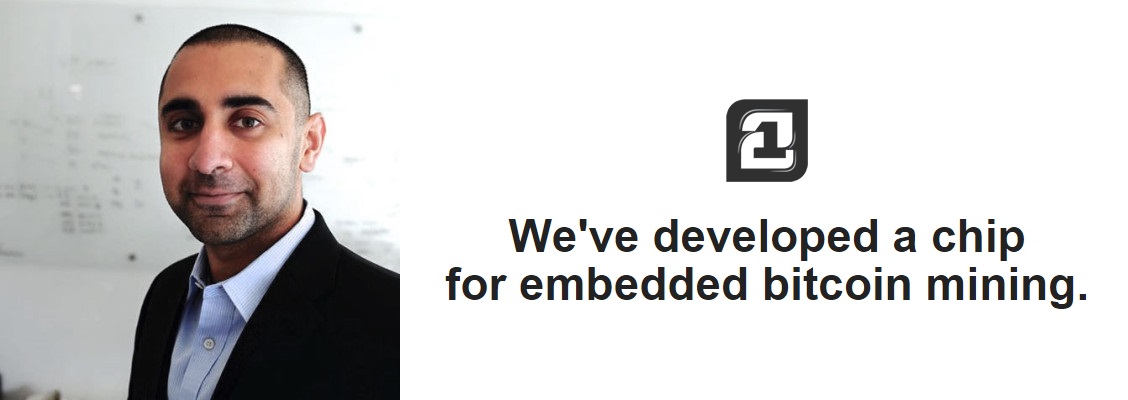The most secretive startup in cryptocurrency, 21 Inc., has finally come out of the shadows, announcing intentions to facilitate a rollout of Bitcoin mining chips to a wave of consumer devices.
Little was known about the San Francisco-based company until a blog post on Medium yesterday by Cofounder and CEO Balaji Srinivasan finally put an end to community speculation.
In the post, Srinivasan unveils 21’s core marketing strategy, which focuses on streamlining the Bitcoin mining experience as a foundation, with a host of technological applications now possible.
Srinivasan writes:
“After much hard work, we’ve created an embeddable mining chip which we call the BitShare that comes in a variety of form factors. The 21 BitShare can be embedded into an internet-connected device as a standalone chip or integrated into an existing chipset as a block of IP to generate a continuous stream of digital currency for use in a wide variety of applications.”

After announcing raising US$116 million in multiple fundraising rounds in March, it was clear that 21’s offering was to be significant, but details regarding market sector and the nature of its products or services remained sketchy.
While some of the company’s goals remain unconfirmed in terms of launch date and application process, Srinivasan nonetheless spells out the ethos behind the embeddable mining chip concept and its main desired applications.
Specifically, generating small amounts of bitcoin on user devices can be a major onboarding factor for cryptocurrency, and the liquidity this brings could among other things be used to lower consumer device prices, facilitating connectivity for the developing world.
“The success of the iPhone was in nontrivial part due to the carrier subsidy,” he continues. “With embedded bitcoin mining we can in theory extend that model to any internet-enabled device, turning a lump sum upfront cost into a potentially more manageable cost of power over time.”
The highlight, Srinivasan says, is that “bitcoin generated by embedded mining is more convenient — and hence more valuable — than bitcoin bought at market price and manually moved over to the site of utility.” Ultimately, however, he notes that it is the “community of electrical engineers and computer scientists that will judge whether embedded mining technology solves their problems.”
The mood from within the 21 team is more than a little enthusiastic, Andreessen Horowitz General Partner and Cofounder Ben Horowitz calling the business “a true leader in the advance of the bitcoin technology and ecosystem” and Srinivasan himself, who is also a partner at the firm, “both a genius technologist and a spiritual leader of the bitcoin movement.”
21 is currently open to signups from electrical engineers, hardware designers or any other interested parties, who can sign up for a developer kit.
